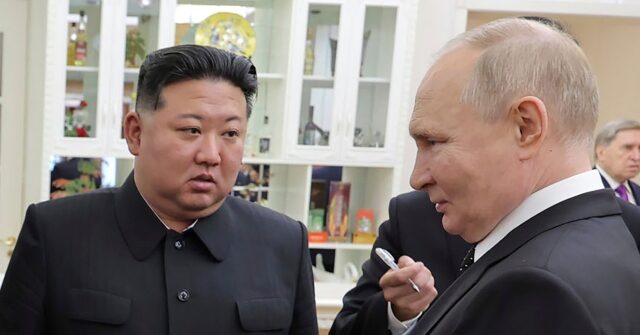An unnamed U.S. official recently disclosed in the British newspaper The Guardian that North Korea has documented hundreds of casualties resulting from its involvement in Russia’s invasion of Ukraine. This figure sharply contrasts with the “dozens” mentioned by John Kirby, the White House National Security Communications Advisor. It suggests a significant military engagement by North Korean forces near the Kursk region, where Ukraine had launched an operation to deter Russian advances in August. The U.S. and Western officials have indicated that the majority of North Korean troops reportedly engage in military operations in this region, reinforcing concerns about North Korea’s burgeoning military presence in Eastern Europe.
The dire reports surrounding North Korean casualties coincide with allegations from the Ukrainian government, claiming that Russian troops have engaged in denigrating actions against fallen North Korean soldiers, including burning their faces to hide their identity. Additionally, there are claims of a “friendly fire” incident involving North Korean troops killing Russian soldiers. While Kim Jong-un and North Korean state media have not formally acknowledged troop deployments, their enthusiastic support for Russia’s invasion raises questions about military cooperation between the two countries, particularly after signing a mutual defense agreement in June.
According to the U.S. military official who spoke to The Guardian, North Korea has sustained “several hundred casualties” this fall, a staggering figure suggesting the intense nature of the conflict faced by their troops. The casualties range from minor injuries to fatalities, primarily attributed to the inexperience of the North Korean soldiers. This viewpoint is echoed by independent Ukrainian sources, which have reported intercepted communications indicating a high influx of North Korean injuries being admitted to hospitals in Russia, further substantiating the claims of significant military losses.
John Kirby described North Korea’s losses as “significant,” acknowledging the difficulty in pinpointing exact numbers but hinting that they are substantial. He mentioned that President Biden had sanctioned North Koreans believed to assist in funding the Russian invasion and expressed concerns over North Korean troops being strategically moved to the front lines of combat. In contrast, Matthew Miller from the State Department noted that North Korean soldiers who have already taken part in the conflict in Russia would become legitimate targets for Ukrainian forces if they were to enter Ukraine directly.
The historical ties between North Korea and Russia have deepened over recent months, particularly as Putin visited Pyongyang for the first time in two decades and solidified military support agreements. Reports of North Korean troop deployments near Ukraine emerged soon after this military partnership was fortified, which raises significant alarm for global security dynamics. Ukrainian officials have consistently reported sightings of North Koreans engaged in combat but have faced refusals from both Russia and North Korea regarding these claims.
Ukrainian President Volodymyr Zelensky has drawn attention to troubling reports of Russian soldiers attempting to dehumanize North Korean casualties by disrespectful acts, showcasing the broader moral degradation perceived within the Russian military structure. Zelensky condemned the situation, highlighting the senselessness of North Korean involvement in the conflict while stressing the humiliation these soldiers face even in death. This grim narrative underlines the increasing complexities of foreign military involvement in the ongoing war, illustrating how alliances can lead to devastating human costs on both sides of the conflict.

